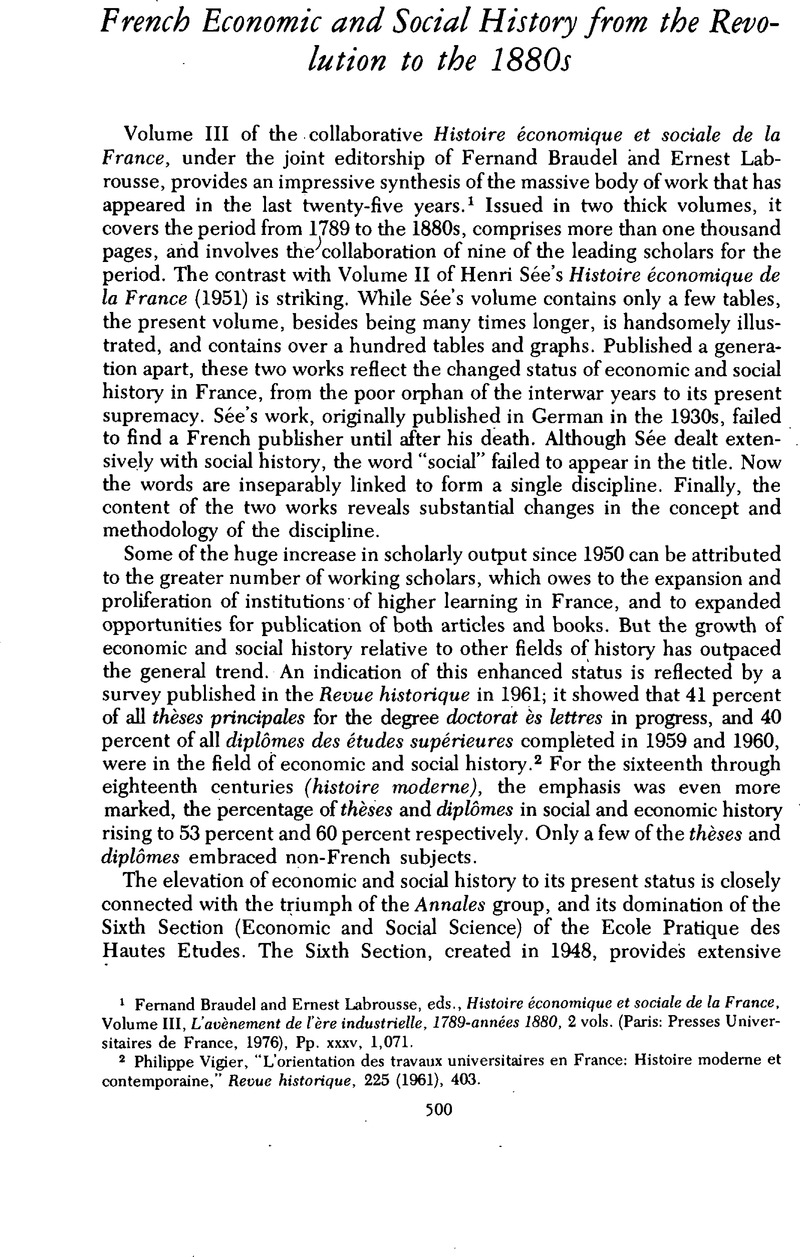No CrossRef data available.
Published online by Cambridge University Press: 11 May 2010

1 Braudel, Fernand and Labrousse, Ernest, eds., Histoire économique et sociale de la France, Volume III, L'avènement de l'ère industrielle, 1789-années 1880, 2 vols. (Paris: Presses Universitaires de France, 1976), Pp. xxxv, 1,071Google Scholar.
2 Vigier, Philippe, “L'orientation des travaux universitaires en France: Histoire moderne et contemporaine,” Revue historique, 225 (1961), 403Google Scholar.
3 On the Annales group see: Jean Glenisson, “L'historiographie française contemporaine: Tendances et réalisations,” in Comité Français des Sciences Historiques, La Recherche historique en France de 1940 à 1965 (1965), pp. ix-lxiv; Aymard, Maurice, “The Annales and French Historiography,” Journal of European Economic History, 1 (1972), 491–511Google Scholar; Forster, Robert, “Achievements of the Annales School,” this Journal, 38 (March 1978), 58–76Google Scholar; Traian Stoianovich, French Historical Method: The Annales Paradigm (1976). For a critique of the Annales group, see Bailyn's, Bernard review article of Stoianovich, this Journal, 37 (Dec. 1977), 1028–34Google Scholar.
4 Dupâquier, Jacques, “Les caractères originaux de l'histoire démographique française au XVIIIe siècle,” Revue l'histoire moderne et contemporaine, 23 (1976), 182–202CrossRefGoogle Scholar.
5 Les Banques européennes et l'industrialisation international dans la première moitié du XIXe siècle (Paris, 1964)Google Scholar.
6 La Bourgeoisie parisienne de 1815 à 1848 (Paris, 1963)Google Scholar.
7 Jean Marczewski, ed., Histoire quantitative de l'èconomie française (1961–). Through the end of 1976, thirteen volumes have appeared, published at intervals in the Cahiers de l'ISEA, renamed after 1966 Economies et sociétés. In France the term “quantitative history” is used in a special sense, involving the reconstruction of retrospective accounts of the French economy based upon the system of national accounting. When hard data is insufficient or lacking, the use of indirect methods permits the reconstitution of series by interpolation and extrapolation. Historians of the eighteenth century have been critical of the validity of resulting time series. The quantitative work of historians in construction of time series based on actual figures is called “serial history” (histoire sérielle) in France.
8 The bibliography is partly the work of Robert Schnerb.